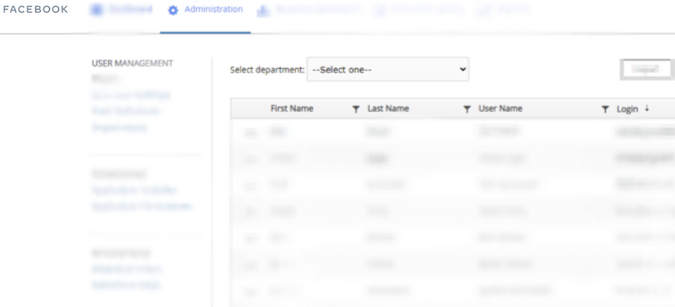A researcher says he has earned more than $50,000 from Facebook after discovering vulnerabilities that could have been exploited to gain access to some of the social media giant’s internal systems.
Cybersecurity engineer and bug bounty hunter Alaa Abdulridha revealed in December 2020 that he had earned $7,500 from Facebook for discovering a vulnerability in a service apparently used by the company’s legal department. The researcher said the security hole could have been exploited to reset the password of any account for a web application used internally by Facebook employees.

In a blog post published on Thursday, the researcher said he continued analyzing the same application and once again managed to gain access to it. From there he claimed he was able to launch a server-side request forgery (SSRF) attack and gain access to Facebook’s internal network. Facebook described this as an attacker being able to send HTTP requests to internal systems and read their responses.
“I was able to scan the ports of the local servers and browse the local applications/web apps that the company uses in their infrastructure,” the researcher told SecurityWeek. “I’m sure such a vulnerability in the wrong hands could be escalated to RCE and can pose a huge risk for the company and its customers.”
The social media giant awarded him nearly $50,000 for this second exploit chain.
Abdulridha also claimed the account takeover attack may have allowed a hacker to access accounts for other internal Facebook applications as well, but Facebook told SecurityWeek it had not found any evidence to suggest that the flaw could be escalated to access other internal accounts.
Facebook has clarified that the vulnerabilities reported by Abdulridha actually affected a third-party service designed for signing documents and they impacted anyone using this service, not just Facebook. The company said it worked with the third-party vendor to quickly get the flaws fixed and said it had found no evidence of malicious exploitation, noting that exploiting the weaknesses was a complex task.
The company also pointed out that the first vulnerability only allowed access to accounts within the third-party document signing app, but did not grant access to any employee accounts used for other internal applications.
While the researcher claimed that it took Facebook nearly 6 months to patch the second round of vulnerabilities, the company told SecurityWeek that while the report was only closed in February, the bugs were actually completely fixed — by both Facebook and the third-party vendor — within a few days.
Facebook also said that while it paid out a bug bounty based on the maximum possible impact it could determine, it did not agree with the researcher’s belief that the SSRF vulnerabilities could have been escalated to remote code execution.
Related: Facebook Announces Payout Guidelines for Bug Bounty Program
Related: Facebook Awards Big Bounties for Invisible Post and Account Takeover Vulnerabilities
Related: Facebook Pays $60,000 for Vulnerability in Messenger for Android














